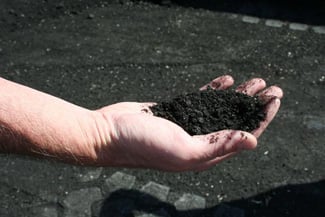 Road construction season may seem more like a nuisance than a necessity. Commuters often take for granted
Road construction season may seem more like a nuisance than a necessity. Commuters often take for grantedwhat a valuable resource asphalt is for our roadways, economy and environment. In fact, asphalt is one of the most crucial materials available in our country with more than 93% of highways and roads being paved. Another positive aspect of asphalt is that it is highly recyclable and poses little to no negative effect on our air quality and surroundings. Here are 10 more cool facts you may not know about asphalt:
- For every $1 billion of federal spending invested in highway construction nationwide, nearly 28,000 jobs are supported.
- More than 90 percent of parking areas in the U.S. are surfaced with asphalt pavement, the material of choice for most commercial and residential development owners.
- Porous asphalt pavements are increasingly used as a low-impact development storm water management tool to handle runoff more cost-effectively than traditional storm water infrastructure.
- Recycling asphalt roads saves American taxpayers more than $300 million each year.
- 80 percent of old asphalt pavement removed each year is re-used.
- Asphalt occurs naturally in both asphalt lakes and in rock asphalt (a mixture of sand, limestone, and asphalt). The first recorded use of asphalt as a road building material was in Babylon around 625 B.C.
- A study by the Federal Highway Administration found that smoother pavements can reduce fuel consumption by trucks by up to 4.5 percent.
- During ancient Egyptian times, asphalt from the Dead Sea was an important item of trade with the most widespread use in the mummification process.
- Asphalt paving construction can be completed quickly, reducing traffic delays for both commuters and long-haul truckers.
- Research shows that asphalt reduces highway noise by 3 to 5 dB(A) and more.
Asphalt has made a prominent societal, economical and environmental impact on both ancient and modern civilization. It’s cost efficiency, reduction in noise pollution, improved safety and comfort, durability and recyclability make it a key factor in continued socio-economic growth. New technologies and applications make this material not only one of the past, but a vital element of our future.





